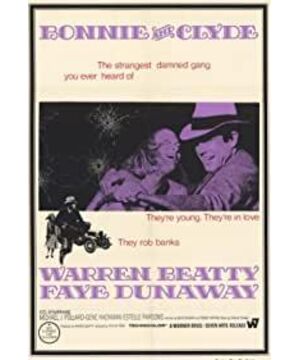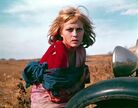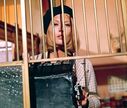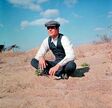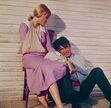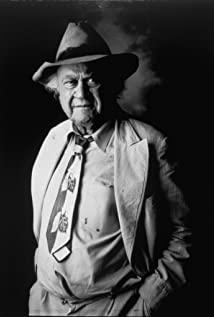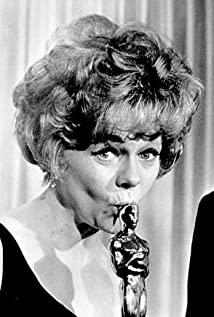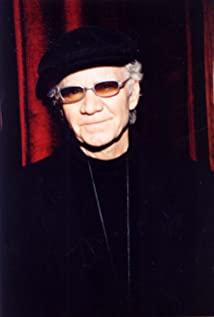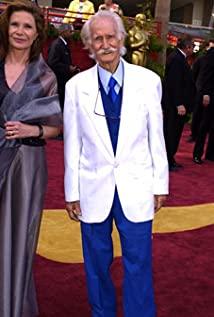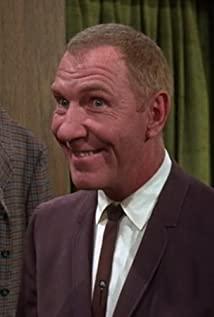and Clyde" is far less appropriate than "Bonnie and Clyde"!
Bonnie Parker and Clyde Barrow, a pair of bank robbers, are famous for a while, they are famous mandarin duck robbers in American history. In the 1930s, they committed many robberies in the central United States, and Clyde killed at least nine police. On May 23, 1934, the two were ambushed by Louisiana State Police.
Bonnie and Clyde, filmed between 1932 and 1934, in front of a 1932 Ford V-8
is a classic of outlaw road movies, based on real events.
Background: During the Great Depression in the 1930s, Bonnie Parker and Clyde Barrow were a pair of male and female thieves who ran rampant in Texas at that time, not only ganging up to rob banks at gunpoint, but also killing many innocent people, but they were finally shot by the police. Social News.
Director Arthur Payne's 1967 film was also controversial. Mainly to beautify these armed robbers! Their bank robbing is justified in the film as a challenge to the social order of the time.
Why does such a tendency arise?
Nothing can be divorced from the specific context at that time!
The era of bank robbers was America in the 1930s. I think everyone is familiar with financial crises, and Black Monday is no stranger either!
At that time, the United States was shrouded in a recessionary ebb. Unemployment rose sharply, banks closed, the stock market crashed, and many people's livelihoods were in trouble. When the state apparatus cannot guarantee the survival of individuals, the public begins to doubt the existing order.
The plot of the design is as follows: Clyde saw a family stop and watch in front of an empty house, reluctant to part, and only after inquiring did he find out that this was their house, and was later confiscated by the bank because he could not pay the loan. Outraged, Clyde shoots the seal on the bank in front of the house and decides to start robbing the bank.
And there were indeed many adventurers at that time, because they could not see hope, so they took the risk! It is better to be killed than to starve to death!
The film was broadcast in the late 1960s, and it also attracted rave reviews, because of the overall social background at that time!
The era of male and female bandits was in the 1930s, but the dissatisfaction with the existing system and the state apparatus expressed in it coincided with the anti-war and anti-government atmosphere in American society in the late 1960s. The roles of each character are well integrated with the background at that time.
The film caused a lot of controversy after its release. The families of those killed by Bonnie and Clyde have accused the film of glorifying the killers; teenagers, on the other hand, idolize them. Faye Dunnaway, who played Bonnie, even wore the most popular style of the year in the film. In that era of protests, school strikes, and anti-war trends, this movie did have the effect of adding fuel to the flames.
About New Hollywood.
"Bonnie and Clyde", a script co-written by Robert Benton and his partner David Newman, was rejected by 20 directors. It was only after Arthur Payne took over the guide tube, which finally announced a new The surging wave of Hollywood movies has also won the director the double reputation of "post-classical Hollywood director" and "new Hollywood director". Judging from the setting of the characters and the clues of the development of things, this is a typical robber-type film that combines road films. As a type of film that appeared earlier in the history of American films, robber films often form the central plot of the fortune, criminal history, and finally decline and failure of a robber or a group of robbers, and provide the audience with a lot of information through the stories of these robbers. action scenes and suspense. In robber films of different periods, the directors have endowed the protagonists with different moral standards and negative degrees of image, and in the hands of Arthur Payne, the legendary career of this pair of male and female robbers who have been put on the screen many times , but in a comedic style, ironing the myth of traditional Hollywood gangster films.
The creation of New Hollywood is embodied in entering the system to seek itself. It is attached to the system, but it is a new wine in an old bottle, and it has come to the opposite end. "Bonnie and Clyde" borrowed the model of traditional robber films, but remodeled the original model, breaking the three-part plot of the crime, repeated chases, and the finale, and produced new texts that were specific to the original model. . The two anti-moralized characters, Bonnie and Clyde, replaced the moralized character positioning in traditional robber films, and showed the characters' lives, behavioral details, survival and psychological states through a long, gentle, everyday narrative. , showing deep sympathy for these two characters, blaming the cause of the crime on the neglect and mutilation of young people by society and family. This tragedy is elevated by the hail of bullets at the end of the film, which film history has repeatedly praised, and it tells the truth about the slaughter of two living lives by the government, the courts and the police. The character Clyde repeatedly appeared in several paragraphs of the film with the image of "impotence". He did not have the brutal and cruel expression like the gangsters in traditional robber films caused by excess libido. Some are just weakness in front of Bonnie. In the story, the Great Depression brought about economic poverty and the 1960s when the film was made were faced with spiritual troubles. Clyde's image symbolized the impotence of society. This is also a resistance to the lack of reflection and criticism of ideology in traditional gangster films. The calm examination is full of reflection on society.
View more about Bonnie and Clyde reviews


